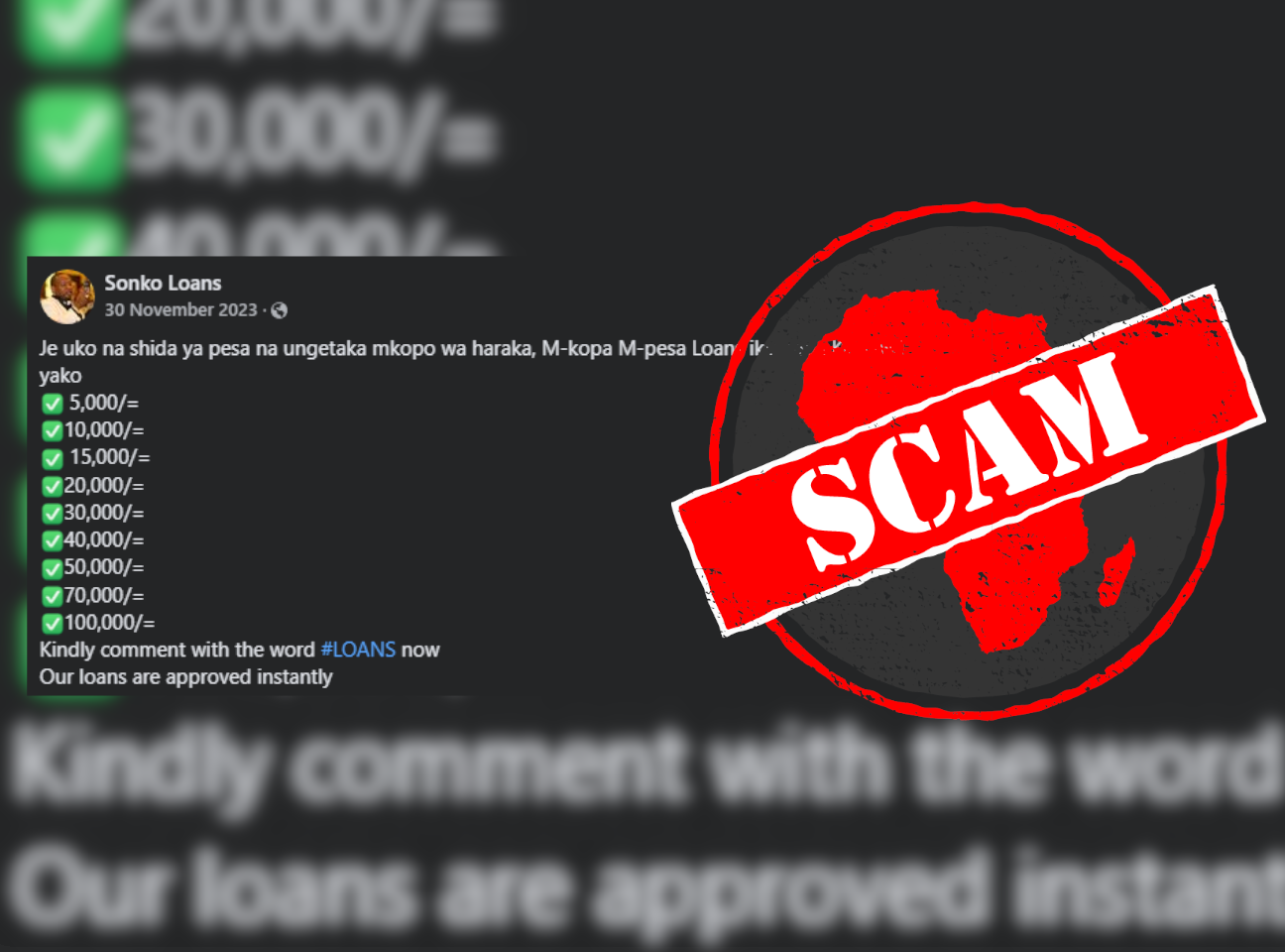IN SHORT: These two Facebook accounts regularly post loan offers in the name of Mike Sonko, the former governor of Nairobi county. But they are impostors trying to trick you into paying a “security fee”.
The Facebook accounts Sonko Loans and HON MIKE SONKO RESCUE TEAM regularly post loan offers on Facebook groups.
The first account uses the name and photos of Mike Sonko, who served as Kenya’s Nairobi county governor between 2017 and 2020. The second one associates itself with the Sonko Rescue Team, a charity initiative linked to the former governor.
Both claim to give users thousands of Kenyan shillings in loans for school fees, personal use, rent, emergencies and agriculture.
Their offers have attracted hundreds of engagements and have been posted multiple times here, here, here, here, here, here, here, here, here and here.
But are the accounts and their offers legit? We checked.

Offers by impostor accounts
The accounts provided users with a WhatsApp number and asked them to apply on the platform.
When we contacted the accounts, each one asked for our details, including our full name and telephone number. They also asked us how much we needed.
When we sent our details, the first account said we should pay a “security fee” of KSh750 to access the loan. The second account put it at KSh600.
We refused because any account that asks for an upfront payment before disbursing loans is untrustworthy.
Sonko’s verified Facebook page had over 2.5 million followers before it was suspended in March 2023. This was announced by Sonko on X (formerly Twitter) and reported in the local media. His verified X account, with over 2.6 million followers, makes no mention of the loan offers.
Both accounts are impostors and should be avoided.
Africa Check has previously exposed Facebook accounts impersonating the former governor here and here.
Republish our content for free
For publishers: what to do if your post is rated false
A fact-checker has rated your Facebook or Instagram post as “false”, “altered”, “partly false” or “missing context”. This could have serious consequences. What do you do?
Click on our guide for the steps you should follow.
Publishers guideAfrica Check teams up with Facebook
Africa Check is a partner in Meta's third-party fact-checking programme to help stop the spread of false information on social media.
The content we rate as “false” will be downgraded on Facebook and Instagram. This means fewer people will see it.
You can also help identify false information on Facebook. This guide explains how.




Add new comment